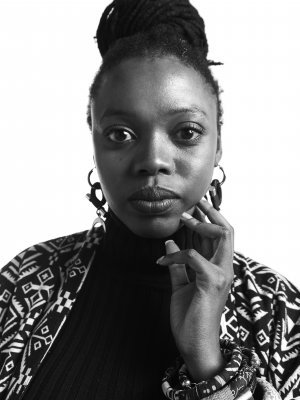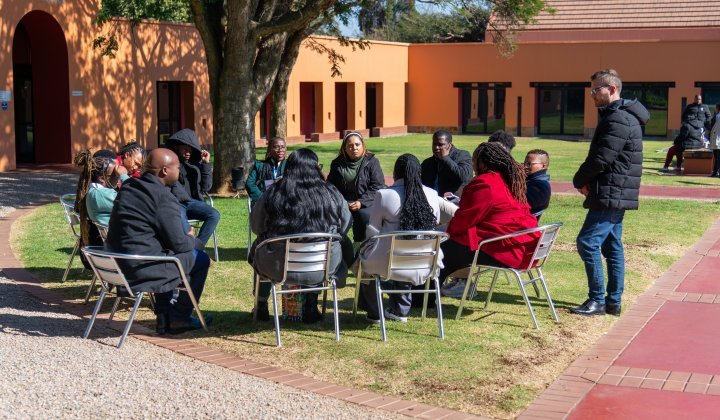For years, the women-owned WDB Investment Holdings (WDBIH) was one of the best examples South Africa had of a strategic effort to strengthen the impact of women serving on boards. The WDBIH focused on a targeted approach to investing and shareholder activism, which paid particular attention to the influence to be wielded at board level.
In an interview with Leadership magazine, Faith Khanyile, former WDBIH CEO, shared some of the smart tactical moves the WDBIH deployed, including positioning women board members on key sub-committees such as the nominations and transformation committees and the social and ethics committee. Khanyile, who stepped down as CEO in May, said: “At the WDBIH board level, we have a development programme where we appoint young women in board subcommittees or even on main boards to give them exposure at a strategic level. In our investee companies, we always insist on having a board seat to allow us to add value to the business in general but also to drive the advancement of women in senior and executive roles.”
These comments penned just a few short years ago still define the situation for many women who have managed to secure a place at the top table but still find themselves having to redefine the game.
Revisiting the numbers
As the Deloitte Women in the Boardroom report for 2022 notes, South Africa’s focus on diversity as per the King Report on Corporate Governance has resulted in a relatively steady climb in the number of board seats held by women between 2014 and 2021. As Colleen Larsen, president of the 30% Club Southern Africa, was quoted as saying, “…the progress of women on boards is being maintained in South Africa… Of interest is that for overall board changes between 2019 and 2020 reporting periods, women appear to be doing reasonably well compared to men in relation to new appointments and board members no longer serving.”
As the accompanying graphs from Deloitte show, strategic representation of women board members on committees such as audit and compensation are also on the rise.
Is this, perhaps, due to strategic drives to occupy these key positions or a reflection of the growing influence of a new generation of women board members? Young, dynamic, hungry to change the world, uncowed by gender politics, and prepared to play open cards with each other to ensure their impact is lasting, a new breed of female board members is taking an altogether more head-on approach to wielding influence.
Rewriting the rules
Nwabisa Mayema, strategic partnerships director at the Branson Centre of Entrepreneurship South Africa, who serves on both the board and as a trustee, is among this number. Talking to Acumen, Mayema notes that there is currently a lot of talk about self-correction in the world of business, with managers and leaders being asked to examine their leadership styles, focus more on empathy and communication, and show increased adaptability as the world of business undergoes a fundamental disruption. However, she stresses that self-correction doesn’t steer itself.
“You have to reach in and drag the needle to where you want it to go,” she says. “Just because we are having the conversation, we think the change will come.”
Turning the discussion back to the representation of women on boards in South Africa, Mayema, who is an alumna of the Goldman Sachs-GIBS 10,000 Women programme, noted that South Africa was a remarkable country because of the ability to have difficult conversations about anything from race, to intergenerational issues and politics. “We are very good at talking, and I celebrate that, but we don’t realise that the talk doesn’t necessarily relate to action. So, at a board level, we need mandates and quotas [to increase female representation on boards] because this isn’t some self-correcting system that seeks equilibrium.”
Legal requirements, such as those enforced in Denmark in 2013 to ensure a more equal 40/60 gender balance on corporate boards, have been shown to be effective, but Mayema believes there is also more that women can do themselves to leverage these positions by virtue of their skills.
One of the Branson Centre’s non-executive board members, Sine Zulu, is an investment manager who, due to her unique skill set, brings particular insights and oversight to the board, says Mayema. Similarly, another non-executive director, Pride Maunatlala, boasts extensive experience in the South African retail industry and plays a central role in helping the Branson Centre better engage with corporate South Africa to get beyond the CSR office and in front of the CEO. Individuals with these skills hold value for any board, irrespective of gender.
Drivers of change
Recognising that women like herself, Zulu and Maunatlala have the added responsibility of being role models to future female directors, Mayema admits that, on her journey, she did not enjoy the guidance and advice of a woman who had already ‘made it’. Fortunately, she notes that this lack is now translating into a burgeoning support system of young, black women executives in Cape Town who regularly and intentionally get together to swap notes, offer positioning advice, and even talk salaries and bonus structures over a glass of wine.
This posse, as Mayema calls them, realised that they were being played off against each other and undercut by companies that assumed they would not be open with one another. So, they turned the situation around and created the sort of backup and support they wished they’d enjoyed from the women who occupied those board seats before them. “We want to be the women we wish we’d had 15 years ago and didn’t know we needed,” says Mayema.
While this emerging dynamic is not explored as much as it should be, Mayema notes that rising numbers of black women in their 30s, who are well-connected and agile, are now increasingly a force to be reckoned with in the top echelons of business. These informal groups are, she believes, “the drivers of transformation. Those wielding the battle axe are black women, which means we are not making friends in the corporate space.” This is why, she laughs, “we are tired all the time”.
In terms of board dynamics, this emerging bloc is certainly ruffling feathers. “It can unsettle a board,” admits Mayema, noting that sometimes this discomfort is tangible. “Often, this might be the first time the rest of the board is dealing with a group of young, strong, competent and connected women. It must be quite something to go from your day-to-day [experience] and then suddenly you are in a room with this ‘power pack’. They might not have seen this before.”
Good practice, some may argue, in dealing with real diversity at board level, because coming up behind Mayema and her posse of 30-somethings is another generation of future women directors who are also rising the ranks. Rather than taking the attitude that these women need to be put through their paces and subjected to the same growing pains as previous generations of female leaders, Mayema believes it’s time to change the songbook.
Right now, the likes of the global 30% Club campaign are still focused on achieving 30% female representation on boards. However, as Delia Ndlovu, chair of Deloitte Africa, noted in the firm’s 2022 report, “There is growing sentiment that 30% female representation on boards is not good enough.” Certainly, the emerging power pack has an altogether bolder agenda.
Mayema’s top tips for delivering board impact
Nwabisa Mayema’s advice to women taking up their first board position is to fully understand the board's role, even before seeking to understand the individual role of the members. The purpose is all-important, she says, and knowing the organisation's purpose must be a board member’s north star.
It’s OK to ask questions of the board in terms of why the board has been constituted, why it exists, and what is expected of board members, she says. “What happens sometimes is that board members think it is enough to just be on the board, and then receive the board pack quarterly, maybe read it, ask some question on the day, and then they are done. But there are roles you can play, and you should offer yourself as a board member for these,” she says.
In line with King IV and the focus on corporate governance, Mayema believes that ethics and conduct should not be an external, feel-good thing but should affect “everyday decisions and actions. At the Branson Centre, our expressed purpose is to change business for good, so ethics and conduct are not just referred to when we are in crisis, they are referred to in everything we do,” she explains.
Finally, she urges non-executive directors to develop an understanding of the day-to-day operations of the business they are helping to steer. Mayema, who understands both sides of this coin, feels that women directors, in particular, need to make time to develop this understanding.
“It’s fine to have high-level discussions, but if you’ve never been to the factory, how can you make decisions about it?” she says, explaining that at the Branson Centre, they invite board members to spend a day each quarter in the team’s co-working space to see how things are done. “It’s an open invitation, and the board members love it,” she says.
‘Get comfortable being uncomfortable’
A growing group of young, black women executives are raising the stakes in beefing up female representation on corporate boards. But, in the process, they are making many entrenched in the old system uncomfortable.
However, author and podcaster Luvvie Ajayi Jones noted in a 2018 TED Talk, “Being quiet is comfortable. Keeping things the way they’ve been is comfortable. And all comfort has done is maintain the status quo. So, we’ve got to get comfortable with being uncomfortable by speaking these hard truths when they’re necessary.”
While it may be challenging for a single woman on a board to make her voice heard, Ajayi Jones echoes a sentiment that seems to epitomise this new movement's cooperative attitude. “If two or more of us band together, it makes us powerful. It’s like co-signing the woman in the meeting, you know, the woman who can’t seem to get her words out, or just to make sure that another person who can’t make a point is being heard,” said Ajayi Jones.
For Nwabisa Mayema, strategic partnerships director at the Branson Centre of Entrepreneurship South Africa, harnessing the “power of the posse” is one way to help women directors increase their impact.







